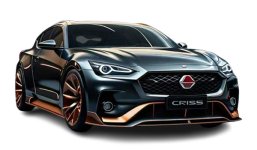If you’re car shopping and want something that stands out from the sea of cookie-cutter compact cars or SUVs, it’s time to look at what Datsun is bringing in 2026. Not just budget rides — they’re smart, efficient, and built to handle real-life driving. You’re city-bound or road-tripping across the countryside, there’s a Datsun that fits.
Let’s keep it simple — quick, clean, and real.
Affordable Datsuns in Spain
Datsun is known for affordability, but that doesn’t mean cutting corners. These models give you practicality, modern tech, and sharp design — all without stretching your budget.
Start with these:
Datsun GO 2026 – A hatchback that’s nimble, fuel-friendly, and doesn’t feel cheap.
Datsun mi-DO 2026 – Compact with solid build quality and surprisingly roomy inside.
Datsun Cross 2026 – A small crossover look with added versatility for everyday life.
Why they’re worth a test drive:
Interiors that feel smart and clean, not basic
Touchscreen and connectivity options on most trims
Safety features that don’t require an upgrade
Solid value that keeps monthly payments low
Mid-Range Datsuns in Spain
Got a little more room in your budget? Want something that feels a step above the entry level? These Datsuns bring more comfort, space, and even a bit of style — still without the luxury price tag.
Take a look:
Datsun on-DO 2026 – A practical sedan with decent tech, good space, and smooth handling.
Datsun Cross Premium 2026 – All the utility of the Cross, with upgraded materials and extras.
Datsun Sport Concept (Rumored 2026) – A fun, affordable performance option for those who want more edge.
Why people like these:
More legroom, cargo space, and ride comfort
Upgraded infotainment systems
Fuel efficiency stays strong even with added features
Good for commutes, family trips, or just looking sharp in traffic
Top-Tier Datsun? Yeah, That’s a Thing in Spain
Think Datsun can’t do premium? Think again. The brand’s pushing forward with designs and tech that surprise people — especially when they see the price tag. Whether it's an electric model or a top-trim crossover, Datsun’s playing the long game.
Top picks:
Datsun EV (Expected 2026) – Fully electric, efficient, and designed for daily driving with zero emissions.
Datsun Cross Elite 2026 – Bold looks, upgraded interior, and ready for longer hauls.
Datsun on-DO Executive 2026 – A refined version of the sedan with added tech and comfort.
Why you might go all-in:
EV range that’s practical, not just for show
Cabin features that punch above the price point
Driving experience that feels smooth, controlled, and connected
You get modern tech — without the bloated cost
Why Datsun in Spain?
Datsun not about hype — but about smart decisions. Built to last, and easy maintainance. In Spain, where fuel costs matter and every dollar counts, Datsun hits the mark.
Why drivers stick with Datsun:
Simple, honest design that still looks good
Efficiency that saves you at the pump — or the plug
Easy to service, easy to own
A name that’s making a comeback — for the right reasons
Ready to See What Datsun Can Do?
Find a Datsun dealership near you in Spain, or check out models online. Book a test drive, compare trims, and see what features matter most to you. Whether you’re going electric, budget-savvy, or looking for an underrated gem — the 2026 Datsun lineup is ready for it.
Related Keywords:
2026 Datsun cars in Spain, affordable Datsun SUVs Spain, best Datsun models 2026, buy Datsun online in Spain, fuel-efficient cars 2026 Spain, Datsun electric vehicle 2026, Datsun dealership near me, Upcoming Datsun 2027 Models List
On this page, Ccarprice provides you with the most-updated Datsun car prices in Spain for 2026–2027.
Hide ▲




















